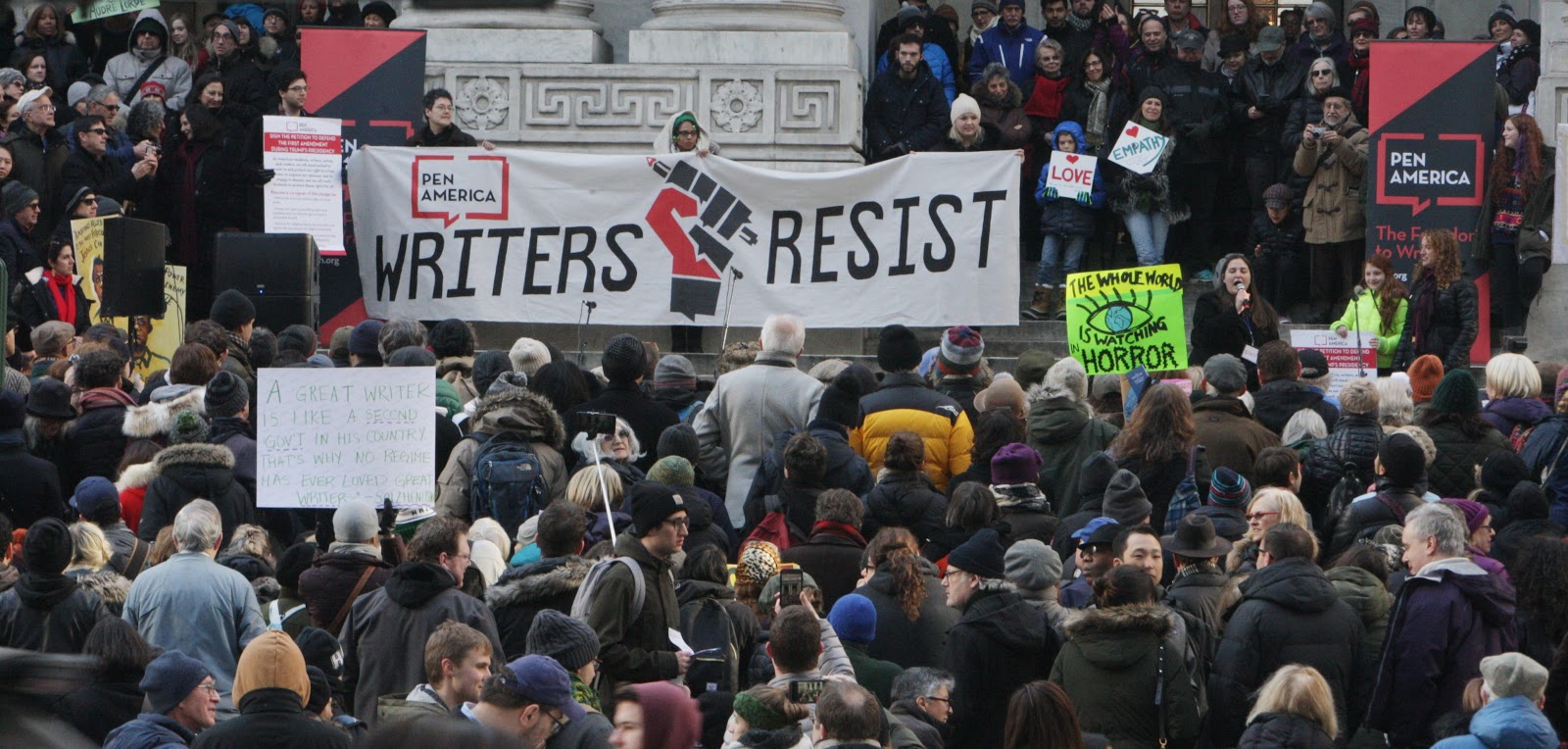PEN America properly alleged injury in lawsuit against the president

The legal battle over whether an organization like PEN America should be allowed to sue President Trump on its own behalf is continuing while the parties in the lawsuit, PEN America v. Trump, await the court’s decision. In the last two weeks, the parties filed supplemental letters highlighting three new decisions from the Second and Fourth Circuit Court of Appeals that they argue are relevant to resolving the “standing” question in this case.
In May, a coalition of nine media organizations, led by the Reporters Committee for Freedom of the Press, argued that PEN America adequately pled a legal “injury” in its lawsuit challenging the president’s alleged unconstitutional actions against the press. These actions include threats to deny broadcast licenses in response to coverage perceived as negative, the White House’s revocation of CNN correspondent Jim Acosta’s security credentials to access White House grounds after he asked a follow-up question at a presidential news conference, and efforts to have the postal service reexamine its commercial relationship with Amazon possibly because The Washington Post, a frequent target of presidential criticism, is owned by Amazon CEO and President Jeff Bezos.
On April 10, the Justice Department had sought to dismiss the case in part on standing grounds under the theory that PEN America’s diversion of resources from its overseas work to address President Trump’s actions cannot constitute a concrete injury because it furthers the organization’s core mission. Were the government to prevail, the ruling could impair the ability of nonprofit groups like those in the media coalition to bring lawsuits in their own names to vindicate crucial First Amendment rights.
In a response filed on May 10, PEN America claimed that because the president has repeatedly threatened the media while in office, the organization has spent “several hundred thousand dollars in organizational funds” initiating research on the impact of such threats in the U.S., publishing reports and articles, staffing an office in Washington, D.C., and engaging in protests and more, and that these efforts have detracted from the organization’s international work.
PEN America further alleges that the frequent attacks on the press during President Trump’s candidacy and presidency, and specific enforcement actions by the Trump White House — such as the postal service fees review; the decision to challenge the merger of AT&T and Time Warner, which owns CNN, another frequent target of the president; and the move to revoke Acosta’s hard pass — all threaten to chill vigorous reporting on his presidency.
Establishing this harm meets the first legal requirement for PEN America to demonstrate that it has “organizational standing,” or the ability to bring a lawsuit on its own behalf against Trump. In addition, PEN America must show that it suffered a “distinct and palpable” injury that is “fairly traceable” to Trump’s actions and is likely “redressable” by a favorable decision.
The friend-of-the-court brief, drafted by WilmerHale pro bono on behalf of the coalition and filed on May 17, emphasizes that when press freedom organizations like PEN America divert resources that they would have otherwise deployed elsewhere, the organizations suffer legal injury. Drawing on precedent in both the Supreme Court and the Second Circuit Court of Appeals, the coalition disagrees with the government’s argument that “diversion of resources” isn’t enough for PEN America to allege that it was injured because the diversion supported other activities within the organization’s mission.
A 1992 Supreme Court case, Havens Realty Corp. v. Coleman, held that an organization suffers a “cognizable,” or legally actionable, harm when the defendant’s supposed actions “perceptibly impair” the organization’s activity, or creates a drain on its resources. A series of cases flowing from Havens Realty, the brief argues, confirms this principle: Because PEN America, in seeking to fulfill its mission with limited resources, had to make a tradeoff between responding to Trump’s alleged conduct and other threats to free expression, it suffered harm and “must be permitted to seek judicial relief.”
The government is seeking to dismiss the case on other standing grounds. As noted, the plaintiffs recently sought to bolster their standing claims by pointing in supplemental letters to two recent federal appellate decisions. First, plaintiffs pointed to the recent decision in Knight First Amendment Institute at Columbia University v. Trump — the case where the Knight Institute successfully challenged President Trump’s practice of blocking critics on Twitter, as supporting their claim that the harm here could be remedied. The court in Knight First Amendment Institute, “assumed” that a declaratory ruling that the blocking violated the First Amendment would suffice to remedy the harm. And the Fourth Circuit decision recently handed down in Overbey v. Mayor of Baltimore found standing to challenge government conduct — in this case the inclusion of gag agreements in police misconduct settlements — that harms newsgathering the right of the public to receive information pertaining to government activity.
With respect to the first element, however, the “diversion of resources” theory of injury is crucially important to press freedom advocacy groups who increasingly have to intervene to defend the rights of nonprofit, regional, and local journalists and news organizations who have been squeezed financially in recent years. The coalition brief highlights a 2016 Knight Foundation survey finding that 65 percent of editors at leading news companies said the industry is less able to pursue First Amendment claims than it was just a decade ago. The brief emphasizes that press advocacy groups work to “fill this void.”
“Allowing organizations like amici and PEN America to pursue these claims may therefore be not only proper but necessary to ensure that the claims can be brought at all,” the brief reads.
The coalition includes the Reporters Committee, the Authors Guild Inc., Freedom to Read Foundation, National Coalition Against Censorship, National Press Photographers Association, Online News Association, Reporters Without Borders, and Society of Professional Journalists.